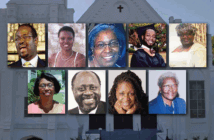Dwight Zscheile outlines how the paradigm of pastoral leadership has changes over the centuries, suggesting that today’s leaders must reclaim the task of leading through the wilderness.
Much of the leadership talk in the North American church today is focused on how questions: “How do I cast vision, mobilize lay leaders, make disciples, help renew my congregation?” We seldom step back and ask the who question: “Who are pastoral leaders called to be in the 21st century?”
From Apostles to Professionals
In their chapter on leadership, the authors of the seminal book Missional Church (Eerdmans, 1998, Darrell Guder, ed.) trace the evolution of pastoral identity from the early church to the present. In the first few centuries, church leaders were apostles, missionaries who worked in collaborative teams based on spiritual gift and function. As the church grew and received official toleration under Constantine, the archetype shifted to priests. Leadership became a matter of office. Holiness, once characteristic of the Christian community as a whole over and against pagan society, shifted onto a special class.
In the middle ages, the priest remained the dominant mode of pastoral leader, serving as mediator and controller of the holy. This corresponded to a new emphasis on the church as dispenser of grace through the sacraments. With the Reformation, the archetype shifted within Protestantism to pedagogue. (Witness the academic gowns still worn by many Protestant pastors to this day.) Combating the papacy’s claims on the term “apostolic,” Protestantism also redefined the church as a place where the Word was rightly proclaimed and the sacraments correctly administered — by the clergy. The Nicene Creed’s definition of the church as “one, holy, catholic and apostolic” community was de-emphasized.
In the 20th century, pastoral identity changed from pedagogue to professional. In the 1960s and 1970s, this played out in a focus on pastor as counselor, tending to the private spiritual needs of individuals. The second professional mode is manager/CEO, dominant in the 1980s and 1990s, though still with us today. Leaders in this mode adapt business strategies to market their churches as vendors of religious goods and services to prospective consumers. Similarly, the leader as technician who implements the latest pre-packaged church growth technique is still in ascendance.
The 21st Century: A New Era
All these professional identities, and the priestly and pedagogical ones that preceded them, assume a settled Christendom context for the church. However, Christendom no longer exists in North America today, as Lesslie Newbigin and the writers in the Gospel and Our Culture Network (www.gocn.org) have pointed out. The church is no longer privileged in our society and we are just beginning to sort out the ways our congregations, theologies, and ways of leading have been colonized by the assumptions of modern culture.
In The Missionary Congregation, Leadership and Liminality (Trinity Press, 1997), pastor and missiologist Alan Roxburgh proposes recovering three ancient archetypes for pastoral leadership in this new era: poet, prophet and apostle. These archetypes might best be understood within two biblical geographies for our context.
The first is the wilderness. Across North America, Christians are beginning to recognize that modernity was a kind of Egypt where the church became captive to ideologies of secularism, individualism, colonialism, and consumerism. Within our congregations today are people with several different mindsets: those who are able to look ahead to envision life in the Promised Land; those who are simply confused and wondering where they are; and those who want to go back to Egypt. Like Moses, leaders must serve as prophets. Prophets call the people back to faithfulness, naming the powers, principalities, and idolatries at work in our midst and facilitating practices of communal discernment of the Spirit’s leading.
The second biblical image is that of Antioch — the missionary encounter with a pagan culture. Living in a context not unlike Paul’s, 21st century pastoral leaders must be apostles. Apostles are sent in mission by God. They also raise up, mentor, and send out other leaders and missionaries. They build covenant communities outwardly oriented toward mission rather than inwardly oriented toward their own spiritual needs. They equip God’s people for ministry.
Missionary leaders are storytellers. Storytellers articulate the shared Gospel narrative in which we find our identity. They are interpreters and anthropologists, reading culture through the lens of the Gospel and translating the Gospel to the culture. They live in the creative, ambiguous space of engagement with a post-Christian world.
Neither Moses nor Paul worked alone. Twenty-first century pastoral leaders must be team members, working collaboratively according to spiritual gifts and calling. The idea of the pastor as solo chaplain to a settled congregation fails to recognize the changed environment of today’s church. Likewise, the authoritarian, “chief”-driven models of modernist bureaucratic leadership are also inadequate. If we are to lead in the image of the Trinity, we must lead as dynamic communities characterized by collegiality and reconciled diversity.
No one ever said leading the people through the wilderness or bringing the Gospel to the Gentiles was easy. Christendom and modernity led us to believe we could do it on our own through the power of office, professional credentials, or techniques. Instead, the profound uncertainties and difficulties of today’s leadership context require us to trust deeply in the power, prompting, and direction of the Holy Spirit. If we are to be faithful to the God who calls and sends us, leading today must begin with spiritual renewal — within ourselves, our leadership teams, and our congregations.
Related Resources
- Christ-like Leadership for a Post-Modern World Charles A. Parker
- Servant Leadership: Jesus & Paul Ann A. Michel
- The Church That Wouldn’t Die Faith Fowler
- Taking Clergy Mentoring To The Next Level: Individual Study Version Video Tool Kit






